G7 slams China ‘militarization’, says seeking ‘stable’ relations
Leaders of the Group of Seven (G7) have condemned China’s economic and military activities, claiming they are seeking to keep the door open to cooperation and avoid further inflaming tensions between China and the West.
In a statement on Saturday, the G7 leaders said there was “no legal basis for China’s expansive maritime claims in the South China Sea, and we oppose China’s militarization activities in the region.”
However, they claimed they are ready for “constructive and stable” relations with China.
“We stand prepared to build constructive and stable relations with China, recognizing the importance of engaging candidly with and expressing our concerns directly to China,” the group said.
“Our policy approaches are not designed to harm China nor do we seek to thwart China’s economic progress and development,” the statement continued, adding that the G7 countries are not “decoupling or turning inwards.”
“Economic resilience requires de-risking and diversifying,” they said, pledging to “reduce excessive dependencies in our critical supply chains.”
The leaders also accused China of undermining the “rules-based international order,” saying a growing China that plays by international rules would be of global interest.
The statement also urged China to pressure its strategic partner Russia to end its war with Ukraine.
“We call on China to press Russia to stop its military aggression and immediately, completely and unconditionally withdraw its troops from Ukraine,” It said.
The G7 includes Japan, this year’s host of the leader’s annual summit, the United States, the United Kingdom, France, Germany, Canada and Italy, as well as the European Union.
Hundreds of people had protested in Hiroshima where the US-led Group of Seven leaders met to stiffen sanctions on Russia, provide further support for Ukraine and discuss growing tensions with China.
China warns against ‘geopolitical games’ as US announces Blinken trip to Papua New Guinea
China on Friday warned against the introduction of “geopolitical games” in the South Pacific following the announcement that US Secretary of State Antony Blinken will visit Papua New Guinea next week.
The US administration has made putting a greater focus on the Pacific region central to its global outreach, largely to counter China’s growing influence there.
“China has no objection to normal exchanges and cooperation between relevant parties and Pacific Island countries, and has always advocated that the international community should pay more attention to and support the development and revitalization of the island countries,” Foreign Ministry spokesperson Wang Wenbin said at a daily briefing.
Taiwan president vows to keep cross-strait ‘status quo’
While marking the seventh anniversary of her governance amid high tensions with China, Taiwan’s President Tsai Ing-wen vowed to “maintain the status quo of peace and stability” across the Taiwan Strait.
“War is not an option,” Tsai said in a speech in the presidential office on Saturday, vowing to defend her country’s freedom and democracy.
She also accused China of pressuring Taiwan, saying Taiwan will not “provoke and will not bow to Chinese pressure.”
“Neither side can unilaterally change the status quo with non-peaceful means.” She said.
“Maintaining the status quo of peace and stability is the consensus for both the world and Taiwan.” She added.
Tsi described her country as being surrounded by risks, saying they are a “responsible risk manager” rather than a “risk maker.”
“We are a responsible risk manager and Taiwan will stand together with democratic countries and communities around the world to jointly defuse the risks,” she said.
Tsi stressed the global importance of Taiwan’s supply chain, which produces most of the world’s advanced semiconductor chips, and vowed to keep the most advanced chip technologies and research and development centers in Taiwan.
She also said Taiwan officials are in discussions with US President Joe Biden’s administration on sending $500 million worth of weapons aid to Taiwan, adding that the aid was meant to address deliveries of weapons delayed due to the COVID-19 pandemic.
Meanwhile, Japanese Prime Minister Fumio Kishida has announced the Group of Seven (G7) rich nations are mulling a “peaceful resolution” to issues on Taiwan.
Leaders of the Group of Seven (G7) rich nations agreed they were seeking a peaceful resolution to issues on Taiwan. Kishida said on Friday, while hosting the G7 summit in Hiroshima.
Taiwan is gearing up for a key presidential election in mid-January, with China tensions set to top the campaign agenda.
Tsai visited New York in March in a controversial trip to the United States, as China had threatened to “resolutely fight back” if she met House of Representatives Speaker Kevin McCarthy.
China has sovereignty over Taiwan and under the “One China” policy, almost all countries, including the US, recognize that sovereignty, which requires them not to establish direct diplomatic contact with the self-proclaimed government in Taiwan.
China has rebuffed calls for talks from Tsai since she took office in 2016, believing her to be a separatist.
The previous speaker of the US House of Representatives, Nancy Pelosi, visited Taiwan in August last year, in a highly controversial trip that drew fury from Beijing and brought the United States and China to the brink of a military crisis.
China launched a series of military drills, summoned the US ambassador and halted some imports from Taiwan in a display of anger against her visit.
Beijing, which regards Taiwan as a breakaway province, has not ruled out the use of force to achieve reunification.
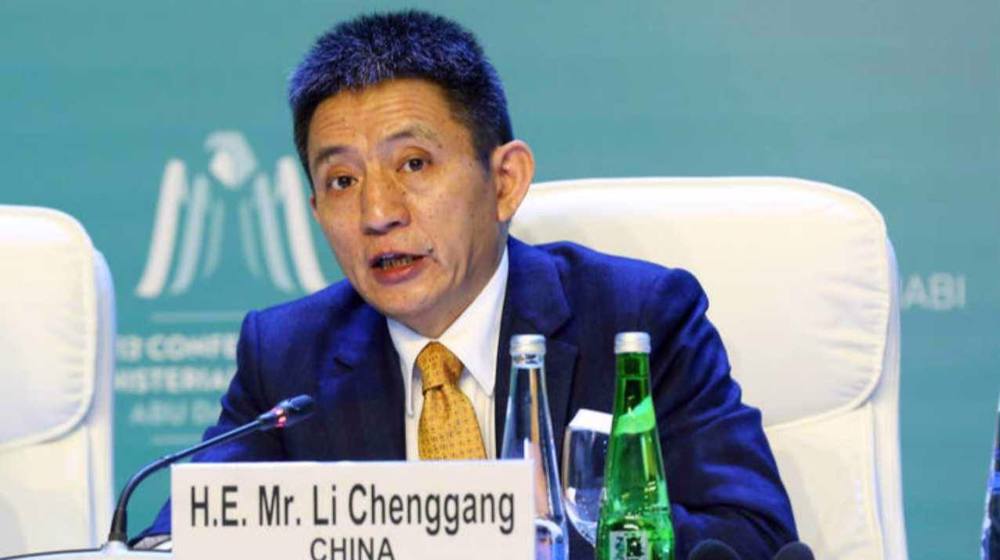
China condemns ‘unilateral and arbitrary’ US tariffs
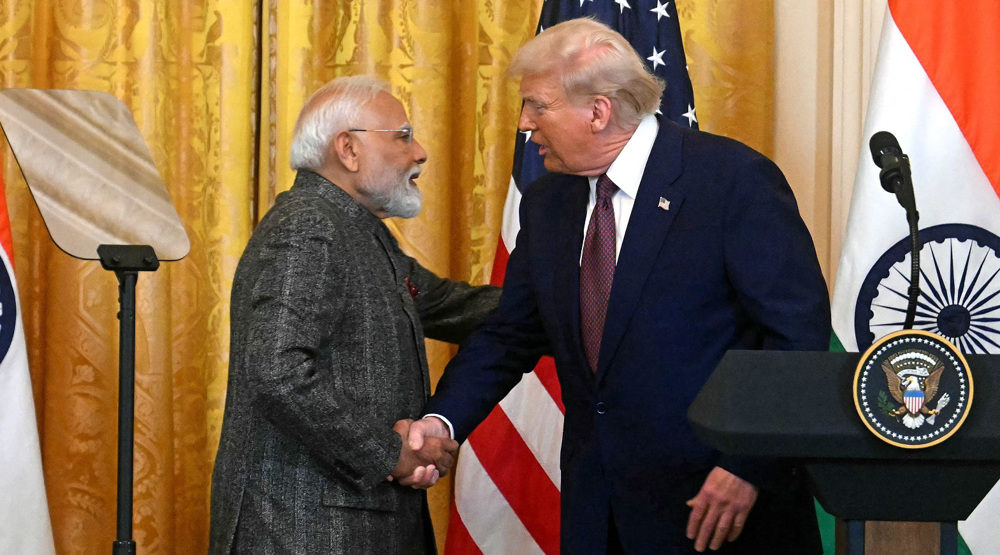
China warns US, India after Trump surge in arms sales to New Delhi
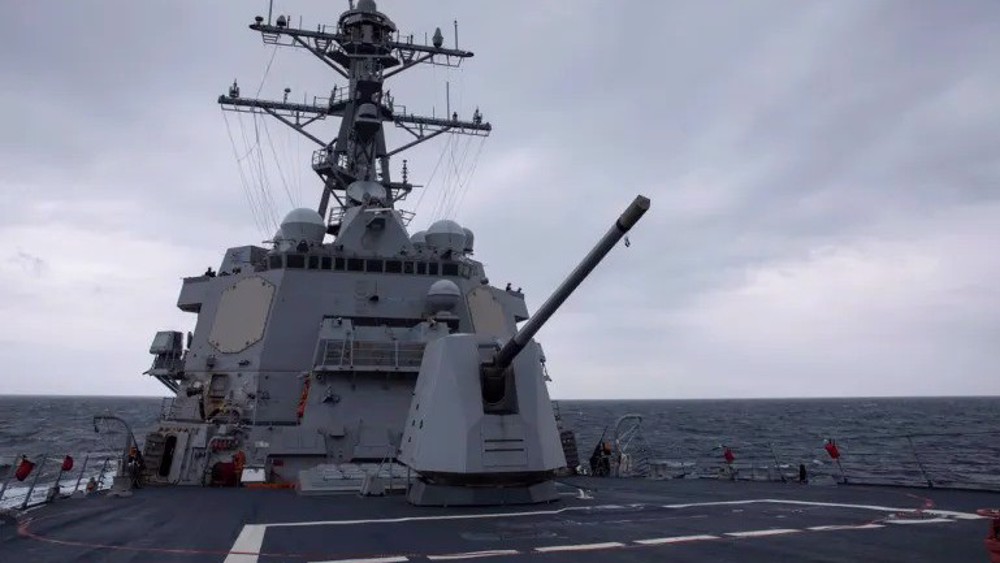
US makes debut passage through Taiwan Strait under Trump's new administration
Australian senator smeared by anti-Iran groups for saying Iranian women 'have a voice'
Hezbollah's display of power proved resistance cannot be eliminated: Iran parl. speaker
Israel escalates West Bank raids as official says regime seeking to complete Gaza genocide
Palestinian man dies in Israeli prison as Foreign Ministry urges intl. probe into regime’s crimes
Putin says not opposed to Europeans’ involvement in Ukraine talks
VIDEO | Iranian Kurdish protesters demand European action against PKK, PJAK terror
VIDEO | Israel expands offensive in northern West Bank, deploys tanks to Jenin
VIDEO | Spaniards fill streets of Cádiz in solidarity with Palestine


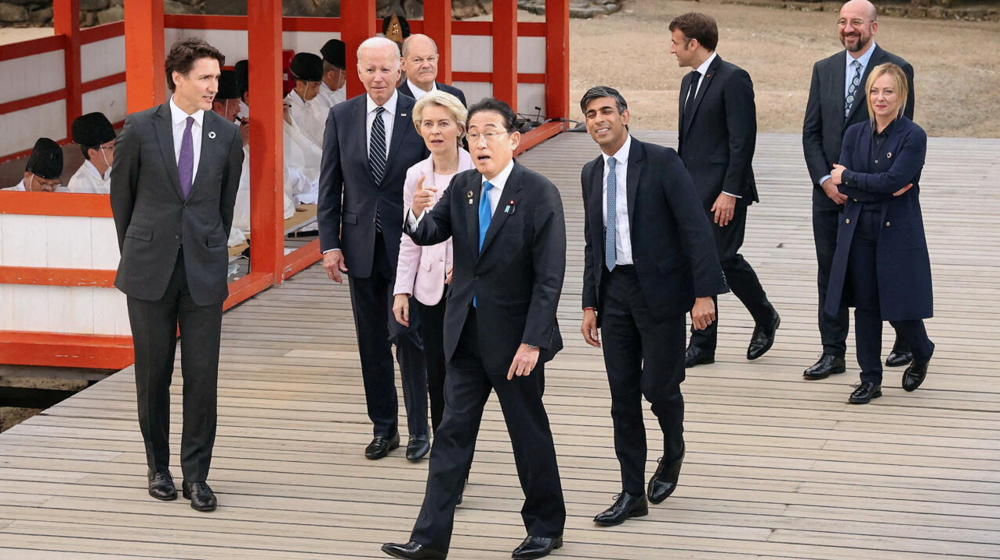
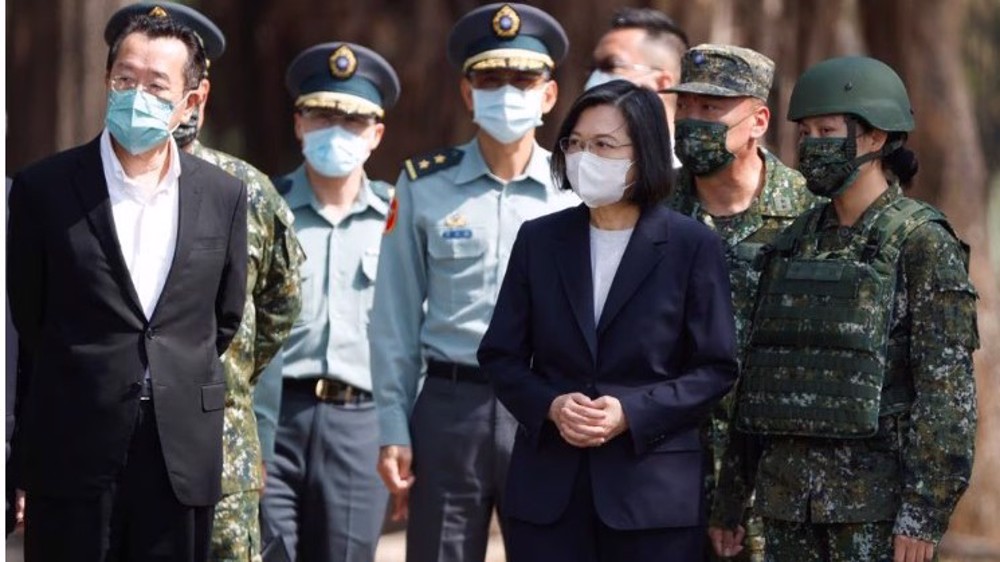




 This makes it easy to access the Press TV website
This makes it easy to access the Press TV website